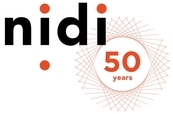Between the end of February and the beginning of May 1975, researchers from NIDI surveyed 5,000 married women across 188 municipalities in the Netherlands for the National Research on Fertility and Parenting Motivation. The aim of this comprehensive survey was to gain insight into the rapid decline in marital fertility that had happened in the foregoing few years. The question was whether the average family size would rise above or below the so-called ‘replacement level’. Would the Dutch population grow or shrink over time?
In this study, NIDI collaborated with the Central Bureau of Statistics and Utrecht University. The sample was taken from a group of women who were married between 1963 and 1973 and includes questions on topics such as social background, contraceptive use, family size expectations and working outside the home.
A year later, the first results were published in the magazine Demografie, the predecessor of the Demos bulletin. In 1963, 40 per cent of couples had a child in the first year of marriage, whereas only 20 per cent wanted the same ten years later. Just 9 per cent of women married in 1973 wanted a large family with four or more children, compared to ten years earlier, when that was the wish of 16 per cent of women. The rapid decline in the birthrate appears to be caused mainly by more frequent postponement of the birth of the first child and a decrease in preferred family size.
| Also view a corresponding VIDEO on postponement of childbearing |  |
In 2020 we celebrated our 50th anniversary as the national demographic institute of the Netherlands. Here we look back at 50 years of NIDI research and relate that to our current research. We present insights and landmarks from some of the studies that have been conducted in the past, combined with short videos of early career scholars at NIDI, presenting current research projects on similar topics.
Back to: NIDI 50 Years • Cross sections of population research
